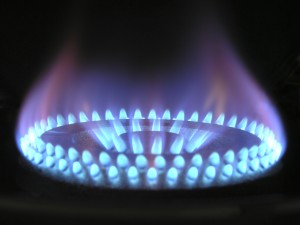 Wouldn’t it be great if you set your thermostat to 70 and every inch of your home was exactly 70 degrees? Well that’s just wishful thinking, isn’t it?
Wouldn’t it be great if you set your thermostat to 70 and every inch of your home was exactly 70 degrees? Well that’s just wishful thinking, isn’t it?
Unfortunately, it’s nearly impossible to have the same exact temperature at every point in your home. But for some homes, the temperature swings can be huge and unbearable. We have seen extreme cases in which a temperature in a room on the first floor can be over 20 degrees different than a room on the second floor.
So why are there such wide temperature swings in different rooms?
There are a number of different reasons that temperatures vary throughout a home. Let’s look closer at a few of the most common:
- Multiple floors.
The most common reason comes down to pure physics. Hot air rises, cool air falls. You’ll often find that in the summer, your rooms on upper floors are much hotter than the first floor or basement. This is because the hot air continues to climb and can get trapped upstairs. Likewise, in the winter you may find the upstairs to be warmer than the lower levels. Using fans to pull or push the air between levels can help alleviate this challenge. - Distance from the HVAC system.
The distance a room is from the system can have a big impact on temperature. As you get further and further from your HVAC system, there is air flow loss. Rooms at the furthest point may not be as warm or cool as the rooms much closer to the system. In some cases, the HVAC fan isn’t strong enough to drive forced air to the far reaches of the home. In some cases a power vent in the system can help your system reach the outlying rooms of your home. - Poor return air flow.
Many homes, especially larger homes, don’t have enough air returns. This doesn’t allow the cool and warm air to be recirculated through the system effectively and the system doesn’t run at peak performance. A qualified HVAC professional can help determine if limited return air is causing issues. - Wrong sized unit.
Bigger isn’t always better. If you have an HVAC system that is too large, it may shut off too quickly—not allowing the cool or warm air to reach all levels and all rooms. And, if the unit is too small it may not be able to keep up and warm and cool the entire home. Your HVAC contractor should be able to share recommendations on the proper sized unit based on the square footage of your home. Don’t just assume that a bigger unit is going to be better. - Poor insulation.
This one is a biggie. You may be sending your heating and cooling dollars right through drafty windows, poorly sealed doors, and under insulated walls and attics. If your home isn’t insulated properly then both heating and cooling will not stay within your home and you will waste a lot of energy. Consider having a home energy audit to identify areas in your home where you are losing energy and then consider making adjustments. - Closed vents.
In some cases, we have found vents to be either closed, clogged, or not connected. Before you do anything else, check to make sure your vents are open. Then make sure there is a clear path for airflow. Make sure you’re not blocking vents with furniture and there is nothing clogged in them. In some cases we have even found that the vents are open, but the ductwork isn’t connected properly and all the cool and warm air was never making it to the vent. - Poor airflow.
If you’re dealing with unbalanced heating and cooling, consider turning on fans throughout your home. This works in both the winter and summer. In the winter, using fans to push the warm air back down can make your home much more comfortable. In the summer, use fans to circulate the cooler air that pools on lower levels.
Looking for More Balanced Heating and Cooling?
Contact the HVAC experts at TJ’s Plumbing & Heating. Our trained HVAC experts will help you evaluate your home’s system, insulation, ductwork and more. In some cases we can identify simple fixes to solve your challenges. Whether it’s a big or small challenge, our team will work with you to identify the most cost-effective and efficient solution. Contact us today for a free consultation.
